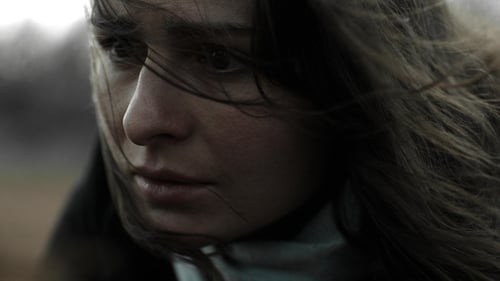Soudade Kaadan
Nacimiento : 1979-01-01, France
Historia
Soudade Kaadan is a Syrian filmmaker, born in France in 1979. She was educated in theatre criticism at the Higher Institute of Dramatic Arts in Syria and in filmmaking at the Saint Joseph University in Lebanon. She has directed and produced documentary films for Al Jazeera Documentary Channel, UNDP and UNICEF. The Day I Lost My Shadow (2018) is her first feature fiction film and was selected for the Venice and Toronto film festivals. In Venice the film was awarded Best Debut.

Editor
Even as bombs fall on Damascus, Mutaz refuses to flee to the uncertain life of a refugee. His wife, Hala, and daughter, Zeina, must make the choice whether to stay or leave.

Writer
Even as bombs fall on Damascus, Mutaz refuses to flee to the uncertain life of a refugee. His wife, Hala, and daughter, Zeina, must make the choice whether to stay or leave.

Producer
Even as bombs fall on Damascus, Mutaz refuses to flee to the uncertain life of a refugee. His wife, Hala, and daughter, Zeina, must make the choice whether to stay or leave.

Director
Even as bombs fall on Damascus, Mutaz refuses to flee to the uncertain life of a refugee. His wife, Hala, and daughter, Zeina, must make the choice whether to stay or leave.

Editor
It is winter in Damascus. Sana, with her eight-year-old son, is living alone while her husband works in Saudi Arabia. When Sana runs out of gas to cook or warm the house, she takes a day off to find a gas cylinder. From there begins a trip into the surroundings of Damas, where Sana finds herself brutally confronted with the effects of war.

Writer
It is winter in Damascus. Sana, with her eight-year-old son, is living alone while her husband works in Saudi Arabia. When Sana runs out of gas to cook or warm the house, she takes a day off to find a gas cylinder. From there begins a trip into the surroundings of Damas, where Sana finds herself brutally confronted with the effects of war.

Director
It is winter in Damascus. Sana, with her eight-year-old son, is living alone while her husband works in Saudi Arabia. When Sana runs out of gas to cook or warm the house, she takes a day off to find a gas cylinder. From there begins a trip into the surroundings of Damas, where Sana finds herself brutally confronted with the effects of war.

Editor
A dynamic take on the life of Syrian refugees told through black comedy.

Screenplay
A dynamic take on the life of Syrian refugees told through black comedy.

Producer
A dynamic take on the life of Syrian refugees told through black comedy.

Director
A dynamic take on the life of Syrian refugees told through black comedy.

Director
Six-year-old Ahmad doesn’t want to remember that he is Syrian. He recently lost his older brother to the war in Syria, and now lives with his family in a Lebanese refugee camp. Traumatised, overwhelmed, disengaged, he prefers to be silent. Director Soudade Kaadan’s patient observation accompanies Ahmad, as he recovers a sense of childhood lightness despite his grief. Amid endless images of violence, the film poses a question about the future, and in Kaadan’s words, “explores the impossibility to verbally express what is happening in Syria now.”

Editor
In battle-ridden Syria, a woman trying to smuggle bread into a blockaded area crosses paths with a soldier on the run.

Story
In battle-ridden Syria, a woman trying to smuggle bread into a blockaded area crosses paths with a soldier on the run.

Writer
In battle-ridden Syria, a woman trying to smuggle bread into a blockaded area crosses paths with a soldier on the run.

Director
In battle-ridden Syria, a woman trying to smuggle bread into a blockaded area crosses paths with a soldier on the run.

Writer
Syrian traditional story-telling, folklore, tales, fictional mythological characters play an important role in their culture. This tradition is passed generation to the next generation — from grandparents to grandchildren. However, in the modern era these stories are being lost. This is happening in Damascus, the capital and the second largest city of Syria, too.

Director
Syrian traditional story-telling, folklore, tales, fictional mythological characters play an important role in their culture. This tradition is passed generation to the next generation — from grandparents to grandchildren. However, in the modern era these stories are being lost. This is happening in Damascus, the capital and the second largest city of Syria, too.






